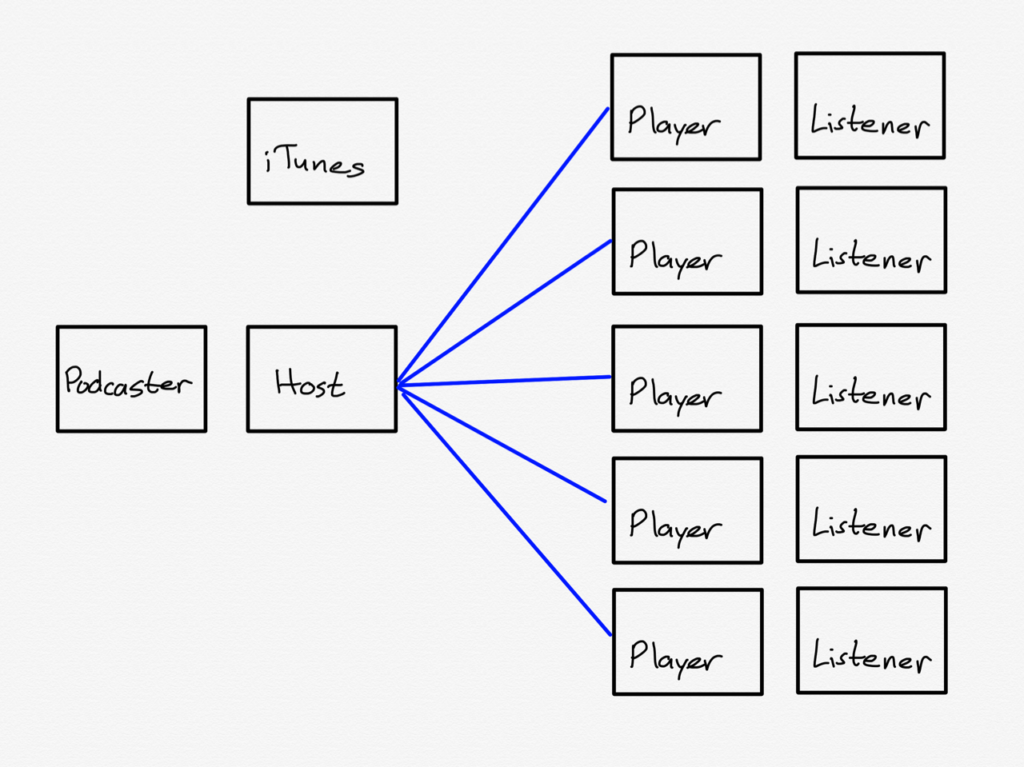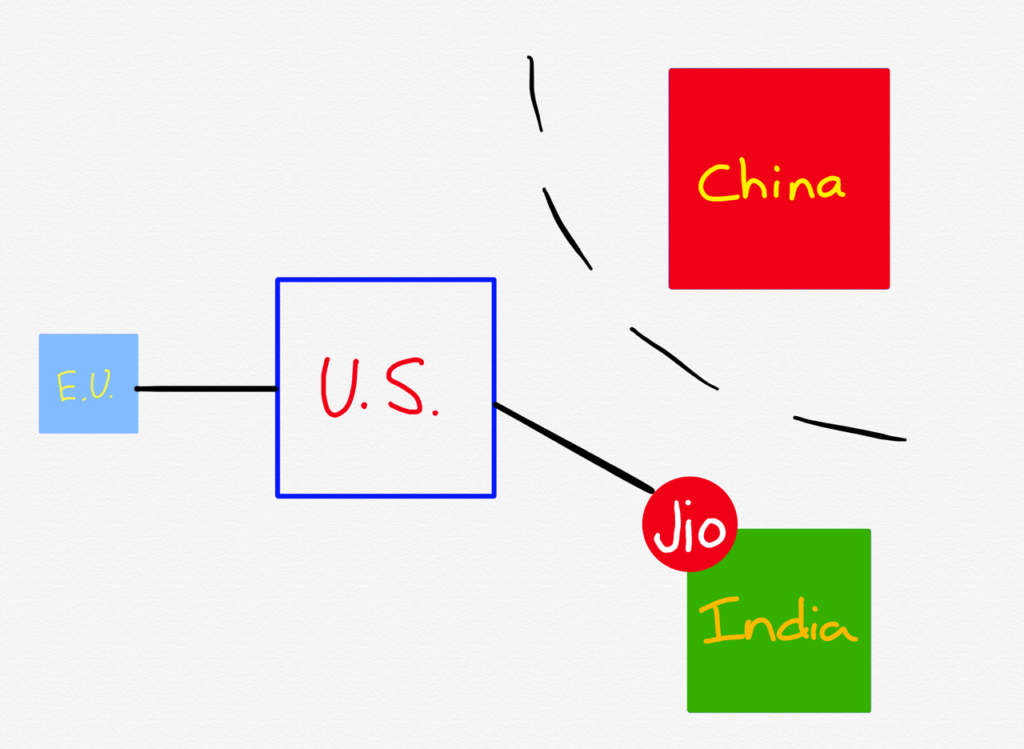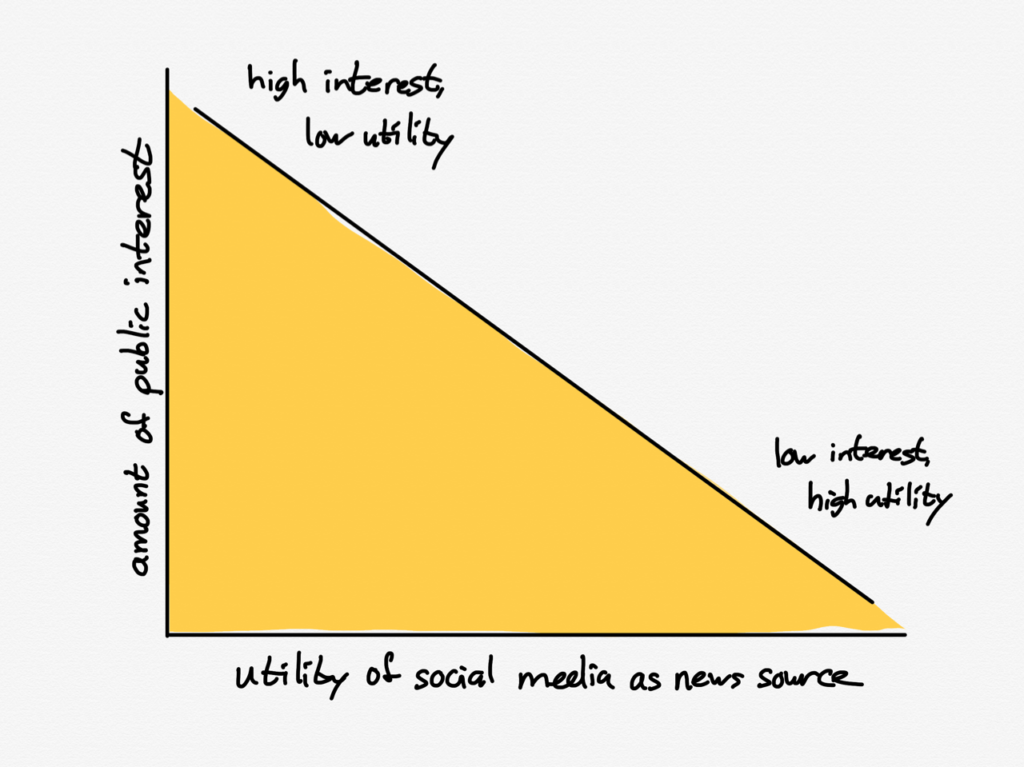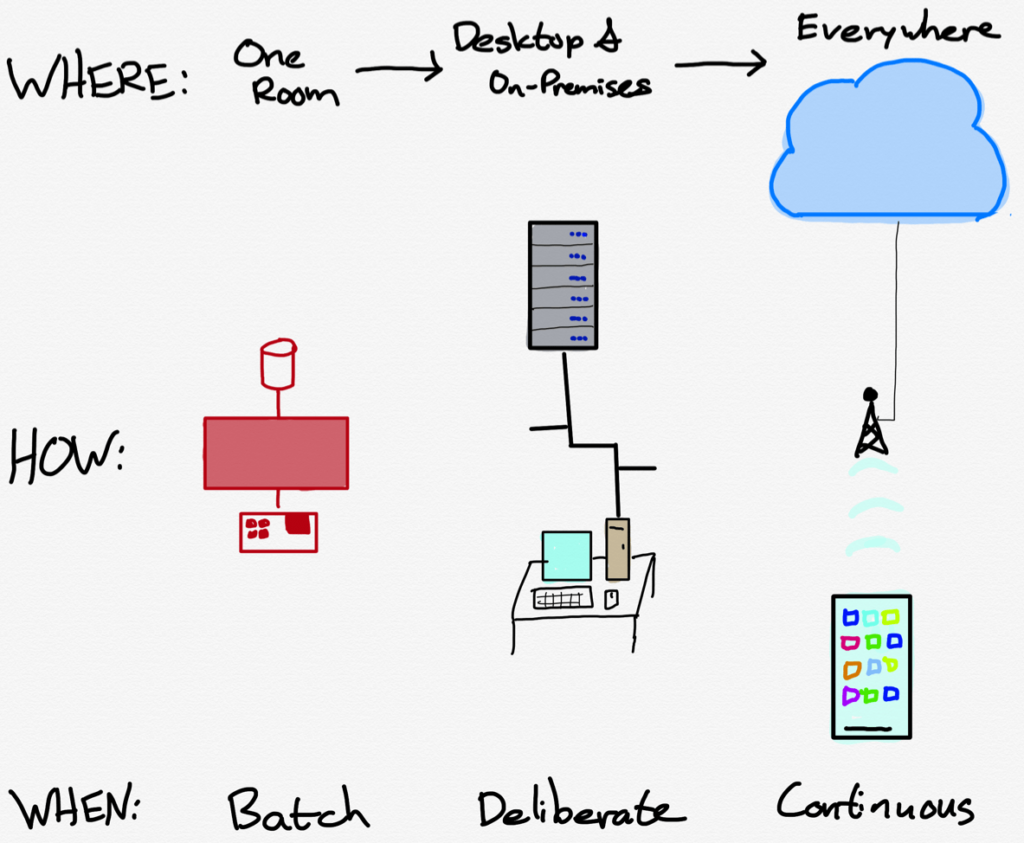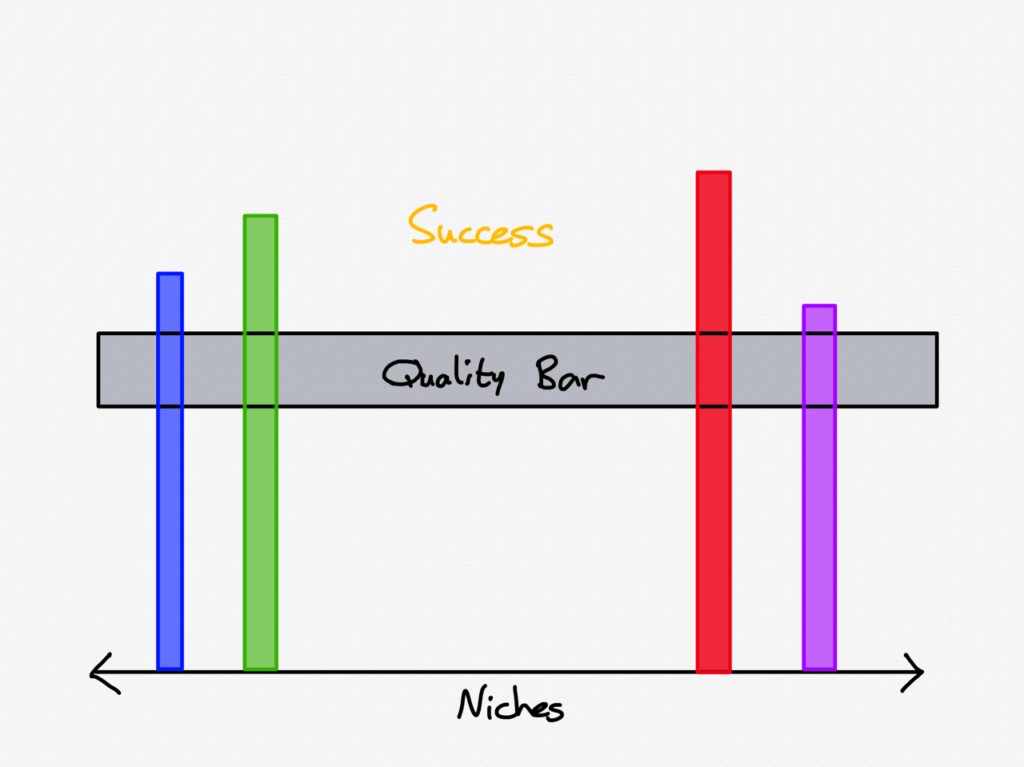The 2020 Stratechery Year in Review – Stratechery by Ben Thompson
From the beginning of Stratechery I have posited that writing about tech is a way to write about everything, given the way in which the Internet is affecting every part of society. The pandemic of 2020 has put this thesis on steroids: the lasting impact of COVID will be not entirely new ways of living, but rather the dramatic acceleration of trends that were already in place, particularly those enabled by technology. This includes real world issues like working-from-home, and new digital questions raised by the sheer quantity of information, much of it wrong, but some very right.
Stratechery explored all of these issues this year, in both 44 Weekly Articles and 141 Daily Updates (including 18 Daily Update Interviews).
This was also an exciting year for new product launches: in February Stratechery launched The Stratechery Podcast which lets you consume Stratechery in your favorite podcast player. Then, in May, I launched Dithering, a thrice-weekly 15 minute podcast, with Daring Fireball‘s John Gruber.
Today, as per tradition, I summarize the most popular and most important posts of the year on Stratechery.
You can find previous years here: 2019 | 2018 | 2017 | 2016 | 2015 | 2014 | 2013
Here is the 2020 list.
The Five Most-Viewed Articles
The five most-viewed articles on Stratechery according to page views:
- The TikTok War — How TikTok exposed Facebook’s blindspot, thanks to its Chinese roots, and why those Chinese roots make TikTok a genuine concern. See also this Daily Update comparing TikTok to Quibi, and this Daily Update about how the TikTok ban went wrong.
- The End of OS X — OS X is retired, but fortunately, its legacy appears to live on in macOS 11.0.
- The Anti-Amazon Alliance — Google Shopping is changing its model, suggesting Google is joining the Anti-Amazon Alliance; 3rd-party merchants should do the same.
- India, Jio, and the Four Internets — There are four Internets: China versus the U.S., and the E.U. and India. India’s potential new model rests on Jio. See also this Daily Update about how Jio’s success shows why Facebook Free Basics was the wrong approach.
- The Slack Social Network — Slack lost to Microsoft head-to-head, but has shifted to a horizontal strategy that the vertically-oriented Microsoft can’t match. See also this Daily Update about Salesforce’s acquisition of Slack.
Coronavirus and Information
The dominant story of 2020 was obviously COVID, but what was particularly interesting from a tech perspective were the debates about surfacing new information while battling misinformation. Notably, the first four articles were a sort of miniseries published in March; the final article discussed the same issues in the context of the election.
- Zero Trust Information — Zero Trust Networking is security with Internet assumptions; there is tremendous value if we apply the same approach to information.
- Defining Information — In a follow-up to Zero Trust Information, exploring the four types of information and how their value changes with time.
- Compaq and Coronavirus — Compaq’s descent from a company of action to a brand is a frightening parable for the the West’s focus on talk over action.
- Unmasking Twitter — Twitter has a new policy to listen to experts about what content to limit; what happens, though, when experts are wrong?
- Twitter, Responsibility, and Accountability — Twitter went too far last week for reasons that go back to 2016 and the unfair blaming of tech for media’s mistakes.
The Big Picture
These are the articles where writing about tech means writing about the world broadly; this has never been more true than in 2020, particularly given that we are at The End of the Beginning.
- The End of the Beginning — The beginning of technology was about the shift from batched computing in one place to continuous computing everywhere. That era of paradigm changes may be over, which means the real changes are only beginning. See also this Daily Update which discussed The End of the Beginning in the context of Carlota Perez’s Technological Revolutions and Financial Capital.
- Coronavirus Clarity — The coronavirus crisis is making clear just how powerful tech companies are; hopefully this leads to a much more productive conversation about how that power should be utilized or regulated. See also How Tech Can Build, about Marc Andreessen’s seminal essay.
- Chips and Geopolitics — TSMC showed the power of modularization, and now they are core to the U.S. national security strategy. See also this Daily Update about TSMC, Intel, and U.S. national security.
- Dust in the Light — The Internet ends gatekeepers and increases transparency, which has world-altering effects — both good and bad.
- Social Networking 2.0 — Facebook and Twitter represent the v1 of Social Networking; it’s a bad copy of the analog world, whereas v2 is something unique to digital, and a lot more promising. See also this Daily Update about how Facebook failed to build a social media platform.
Niches and Direct-to-Consumer
While Stratechery frequently discusses Aggregation Theory, a major focus in 2020 were companies and platforms that go direct-to-consumer by focusing on niches.
- Email Addresses and Razor Blades — The fate of Harry’s and other DTC companies, particularly relative to companies like Credit Karma, highlight how the Internet elevates the importance of demand over supply.
- Platforms in an Aggregator World — Facebook Shops are good for Shopify merchants, but bad for Shopify; the answer is to push more into the real world. See also the afore-linked The Anti-Amazon Alliance.
- Never-Ending Niches — The Internet changed how media competes to focus and quality, but quality is defined by your niche.
- Disney and Integrators Versus Aggregators — Disney’s reorganization reinforces their integrated strategy; there is a lot to learn for anyone competing with Aggregators.
- The Idea Adoption Curve — Mapping the technology adoption curve to ideas gives insights as to which business models work on which parts of the addressable market.
Antitrust, Regulation, and the App Store
One month after writing Aggregation Theory I noted that regulation was inevitable; that inevitable moment arrived in a big way in 2020, with Congressional hearings, reports, and multiple antitrust lawsuits. Apple also received unprecedented attention for its control of the App Store; both were big topics on Stratechery:
- First, Do No Harm — As regulators look closer at acquisitions they should be extremely wary of unintended consequences. The current system works well for everyone, most of the time.
- Antitrust Politics and Anti-Monopoly vs. Antitrust focus on the antitrust subcommittee hearing with big tech executives, and the report that followed. See also this Daily Update for the questions Congress should have asked.
- United States v. Google — The Justice Department’s lawsuit against Google is appropriately narrow, and if it fails it gives a template for Congressional action. See also Is the Internet Different?, which draws direct connections between Aggregation Theory and my views on antitrust.
- Apple and Facebook and Privacy Labels and Lookalike Audiences focus on the sharpening dispute between Apple and Facebook, which, despite their differences, are more dependent on each other than Apple in particular realizes. See also this Daily Update about the FTC’s lawsuit against Facebook.
- Apple, Epic, and the App Store explained how Apple leveraged its integration to control the App Store, while Rethinking the App Store tried to figure out a better approach that Apple might actually implement.
Five Companies
Stratechery had its usual focus on specific companies and the evolution of their strategies in 2020. In addition to the afore-linked India, Jio, and the Four Internets:
- Visa, Plaid, Networks, and Jobs — The history of credit cards helps explain why Plaid is valuable to Visa, and how Visa can make it significantly better. See also this Daily Update about the Justice Department’s lawsuit to block the Visa-Plaid acquisition.
- Apple, ARM, and Intel explained how Apple ended up replacing Intel chips with their own ARM chips, which is a core part of Apple’s Shifting Differentiation to superior hardware integrated with exclusive software. See also this Daily Update about Intel’s ongoing struggles.
- Nvidia’s Integration Dreams — Nvidia’s acquisition of ARM only makes sense from a financial perspective, unless you buy Jensen Huang’s datacenter dreams.
- 2020 Bundles — The state of bundles in 2020: Netflix, Disney, Amazon, Microsoft, and Apple. Plus, Microsoft’s purchase of ZeniMax. See also this Daily Update with more about Microsoft’s ZeniMax purchase, and this Daily Update that explains how Microsoft’s Xbox strategy is dramatically different from Sony’s PS5 strategy.
- Stripe: Platform of Platforms — Stripe’s announcement of Treasury — banking-as-a-service — manifests the breadth of the company’s ambition.
Stratechery Interviews
Thanks to the launch of the Stratechery Daily Update Podcast I devoted more Daily Updates this year to interviews, including:
- Dan Wang on technology and manufacturing in China.
- Bill Bishop on U.S.-China relations.
- Matthew Ball on Disney and Bob Iger.
- Automattic CEO Matt Mullenweg on working from home.
- Eugene Wei on the half-life of information.
- Tim Culpan on Taiwan, COVID, and Apple’s supply chain.
- Zeynep Tufekci on masks, media, and information ecology.
- Okta CEO Todd McKinnon on Okta’s identity opportunity and operating during COVID.
- Ethan Sherwood Strauss on the media and the NBA.
- NBA Commissioner Adam Silver and Microsoft CEO Satya Nadella on the new partnership between Microsoft and the NBA.
- John Gruber about being a niche publisher and the launch of Dithering.
- Slack CEO Stewart Butterfield on Slack’s acquisition of Rimeto and Slack as a social network.
- Paul Mozur on technology in China.
- Twilio CEO Jeff Lawson on Twilio’s acquisition of Segment.
- Microsoft EVP Phil Spencer on Xbox’s service-based approach to gaming.
- MongoDB CEO Dev Ittycheria on how MongoDB fought off Amazon’s encroachment on open-source business models. See also this Daily Update about how well MongoDB’s approach has worked.
- BuzzFeed CEO Jonah Peretti on BuzzFeed’s evolution and acquisition of HuffPost.
- Stripe President John Collison on Stripe’s ambition.

The Year in Daily Updates
Fifteen of my favorite Daily Updates:
- Clayton Christensen Passes Away, Professor Christensen and I, Kobe Bryant and Measuring Your Life — There is no greater influence on Stratechery than Professor Clayton Christensen, but it is another death — Kobe Bryant’s — that reminds me of what truly matters.
- Epic Systems and Electronic Health Records, Aggregators and Data Portability, Epic’s Privacy Objections — Epic Systems, an electronic health records company, is protesting a mandate that they make consumer health care available via API. Their arguments highlight the tension between interoperability and privacy.
- Spotify Earnings, Podcasts and Lifetime Value, The Ringer Acquisition — Spotify’s mixed earnings, why podcasts are uniquely valuable to the company, and where The Ringer fits in. See also this Daily Update about Spotify’s acquisition of Megaphone and what it says about their strategy.
- Zoom was covered in the Daily Update multiple times, both because of its explosive growth, and also its ties to China. See here, here, and here
- Apple and Amazon Make a Deal, Three Angles, Apple vs. Amazon — Apple and Amazon make a deal; I suspect it has been in the works for a long time, including Apple Music being on Alexa. See also Apple, Amazon, and Common Enemies.
- Facebook Earnings, Auction Dynamics, Full Steam Ahead — Facebook earnings demonstrated the power of its auction-based direct-response model; what makes it different from Google is Zuckerberg’s drive.
- Media, Regulators, and Big Tech; Indulgences and Injunctions; Better Approaches — Blaming Facebook and Google for the media industry’s trouble inevitably leads to bad regulations with unintended consequences and the end of accountability for big tech.
- Trump’s Executive Order, Section 230 In Court, Public Forums — President Trump is poised to sign an executive order that applies to social networks; its reasoning about Section 230 and public forums is not in line with judicial precedent.
- Zuckerberg’s Choice, Zuckerberg’s Power, Zuckerberg’s Conviction — Why Mark Zuckerberg has made the right choice about Trump’s posts, why his power is a problem, and why his conviction is impressive.
- Australia’s News Media Bargaining Code, Breaking Down the Code, Australia’s Fake News — Australia’s new media code forcing Google and Facebook to pay incumbent media companies is wrapped in dishonesty about the reality of the Internet.
- Coinbase’s Clarification, Spotify and Joe Rogan, A Framework for Politicization — Coinbase and Spotify are both grappling with political questions, which is something all companies should prepare for.
- Amazon One, How Amazon One Works, Good or Bad Idea? — Amazon announces Amazon One: how does it work, and is the underlying technology a good idea?
- IBM Splits, IBM Skepticism, IBM and Antitrust — IBM is splitting itself up, and while it makes sense, it is an admission of failure. It’s also a lesson for regulators.
- Tech in Congress, Again; Twitter vs. the New York Post; Who Are the Refs? — Congressional tech hearings are becoming more compelling with time, as tech companies run the risk of making not just economic enemies but political ones.
- WarnerMedia to Stream Movies First Day, AT&T Versus HBO, Self-Disruption — WarnerMedia’s move to stream all of its movies on HBO Max appears to be value disruptive, but if the company is actually meaningfully responding to disruption, that was inevitable.
I am so grateful to the Stratechery (and Dithering!) subscribers that make it possible for me to do this as a job. I wish all of you a Merry Christmas and Happy New Year, and I’m looking forward to a great 2021!


